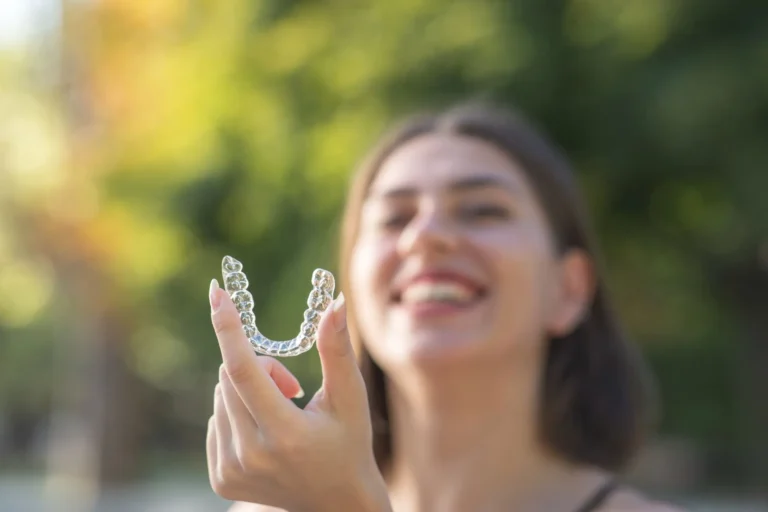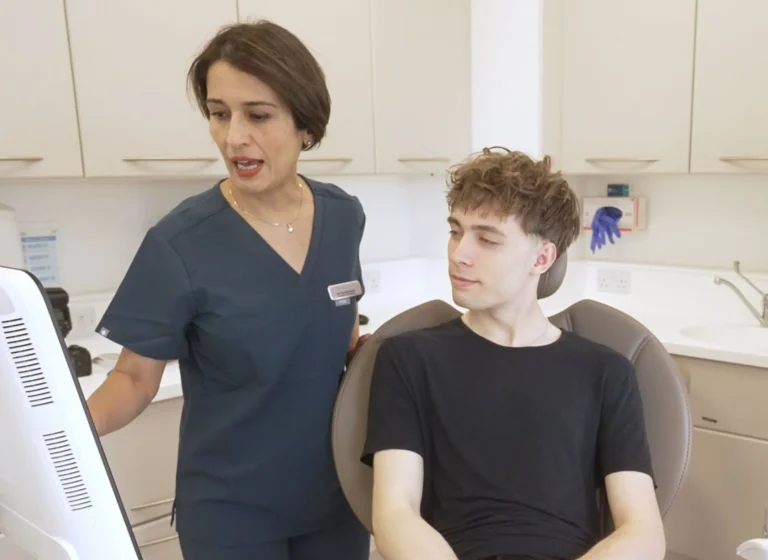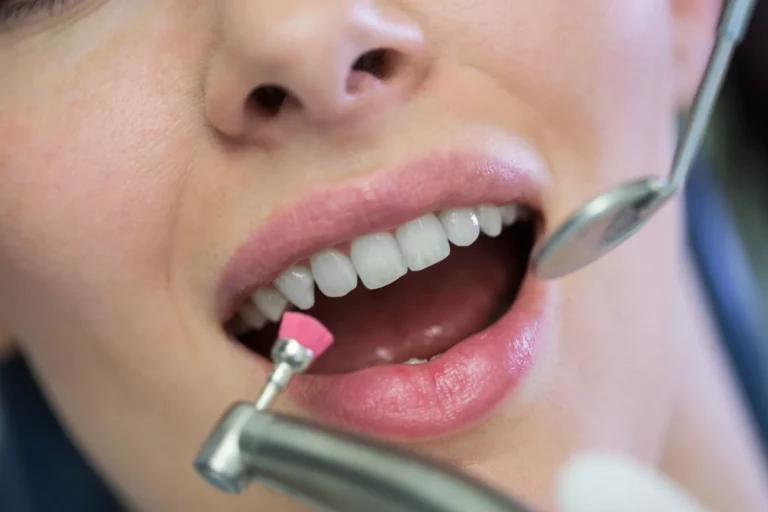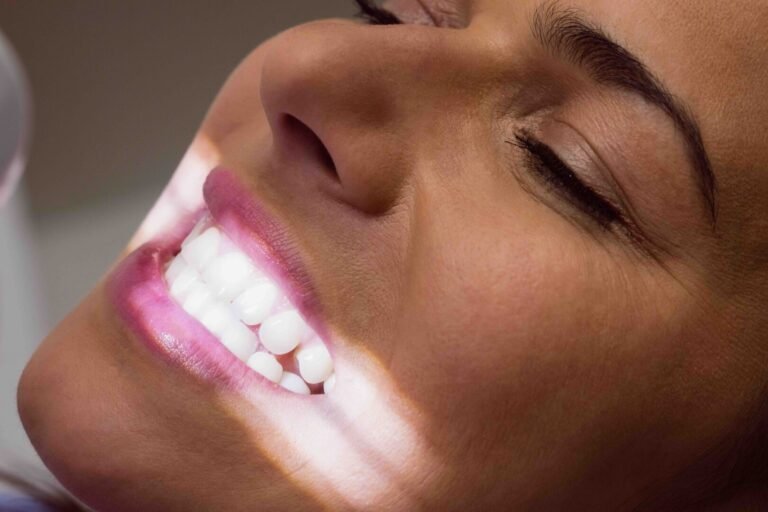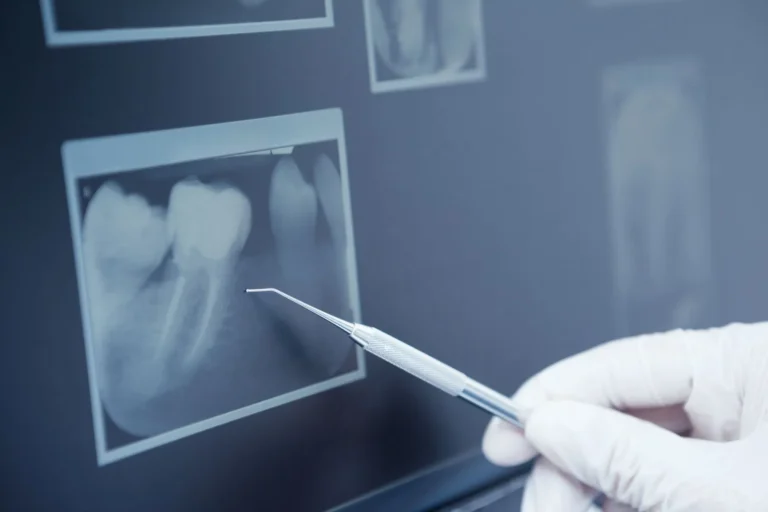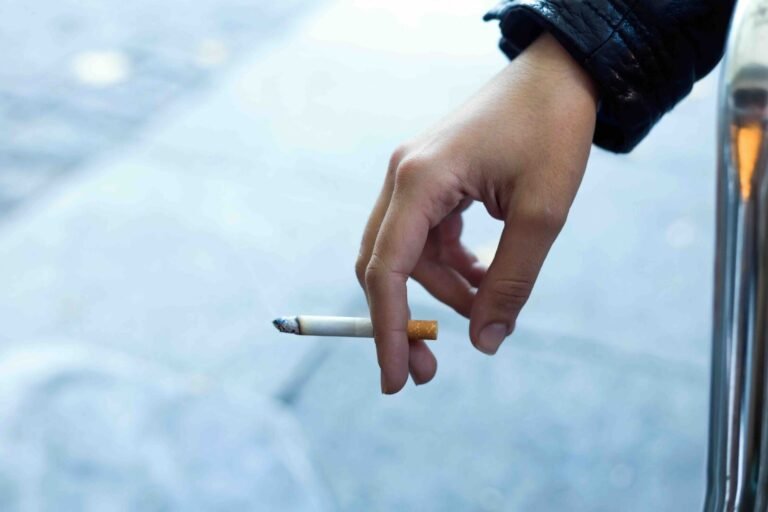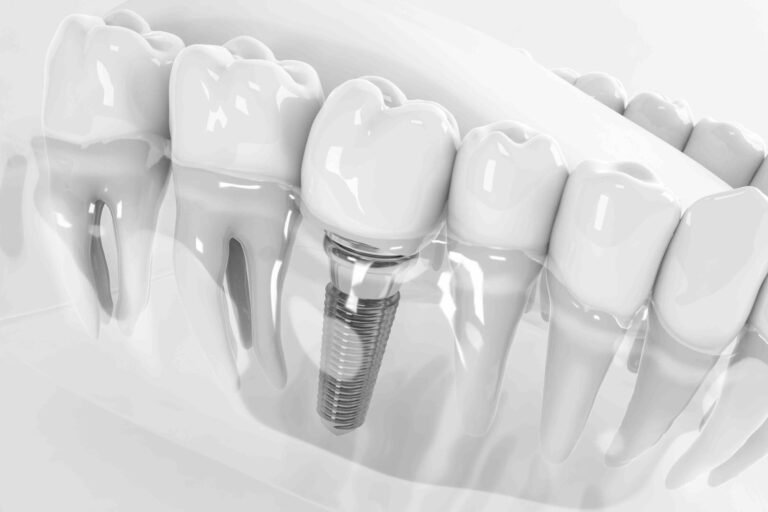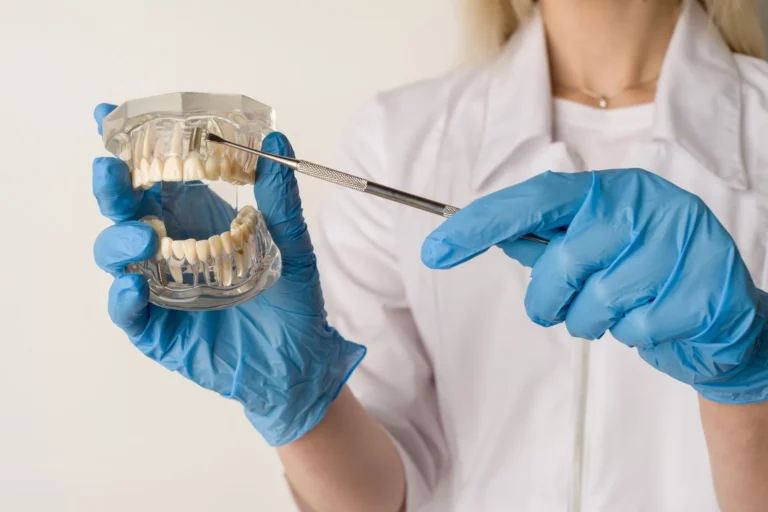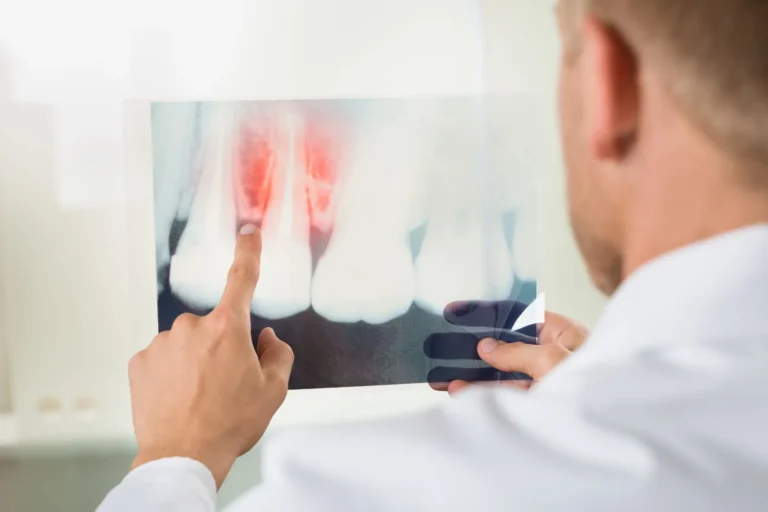The topic of dental implant and allergies often raises concern among patients considering implant surgery. At Premier Smile Dental Excellence in Leighton Buzzard, this is a common question during consultations: “Can I have an allergic reaction to a dental implant?” The truth is that allergic responses to implant materials are extremely rare, but understanding how they occur—and how dentists prevent them—is essential to feeling safe and informed before treatment.
Dental implants have revolutionised restorative dentistry by providing stable, long-term solutions for missing teeth. They are usually made from titanium or titanium alloys, materials that are biocompatible and have been used in medicine for decades. However, as with any medical device placed in the body, patients occasionally worry about sensitivity or intolerance. Let’s explore what science says about this topic and how modern implantology keeps risks to an absolute minimum.
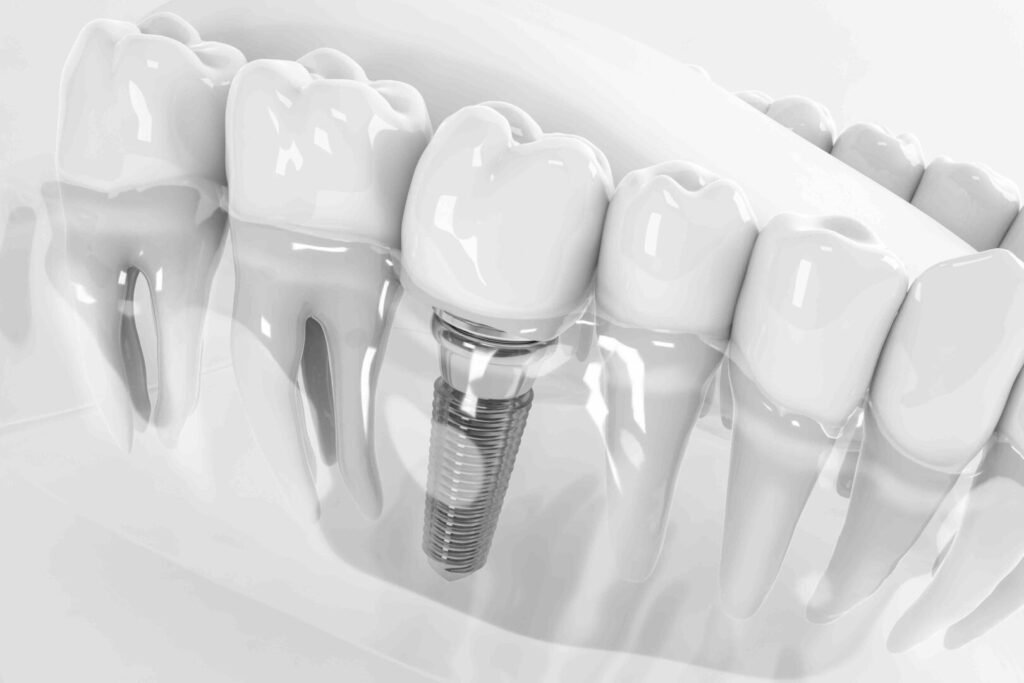
What Are Dental Implants Made Of?
A dental implant typically consists of three parts:
– The fixture, a screw-like structure placed inside the jawbone;
– The abutment, which connects the implant to the prosthetic crown;
– The crown, which restores the visible portion of the tooth.
The fixture and abutment are most commonly made of titanium, a metal known for its excellent biocompatibility and resistance to corrosion. Some systems may use titanium-zirconium alloys or zirconia implants, which are entirely metal-free. Titanium has been used in medical prostheses—from hip joints to cardiac valves—for over 50 years and has proven to integrate harmoniously with bone tissue, a process known as osseointegration.
Reactions to titanium are exceedingly uncommon because the metal naturally forms a protective oxide layer that prevents the release of ions into the surrounding tissues. This makes it inert and unlikely to trigger the immune system.
Can You Be Allergic to a Dental Implant?
True allergies to dental implants are extremely rare. Unlike nickel or cobalt—metals sometimes found in cheaper dental alloys titanium rarely provokes allergic reactions. When they do occur, they are usually linked to an individual’s unique immune response rather than the material itself.
Possible signs of intolerance may include:
– Persistent swelling or redness around the implant area;
– Unexplained itching or burning sensations;
– Delayed healing after surgery.
However, such symptoms are not always allergic in nature; they may result from local irritation, poor hygiene, or an infection. For this reason, it’s important not to self-diagnose. Only a dentist can determine the cause through clinical evaluation and, if necessary, allergy testing.
How Do Dentists Diagnose Potential Metal Allergies?
Before any implant placement, the team at Premier Smile Dental Excellence carefully reviews the patient’s medical history, asking about known allergies to metals, medications, or other materials. If there is any concern, a patch test or blood test (MELISA test) may be recommended to identify hypersensitivity to metals like titanium, nickel, or chromium.
These tests measure immune reactivity and help ensure that the chosen material will be well tolerated. In very rare cases where titanium sensitivity is confirmed, metal-free zirconia implants can be considered as an alternative. This ensures both biological safety and long-term durability of the treatment.
Are There People at Higher Risk of Allergic Reactions?
Although rare, certain groups might have a slightly higher likelihood of experiencing hypersensitivity, including:
– Patients with multiple metal allergies (for example, those who cannot tolerate jewellery);
– Individuals with autoimmune disorders;
– People with a history of unexplained skin rashes or inflammatory conditions.
Even in these cases, the probability of reacting to a dental implant remains very low. What’s important is proper preoperative assessment. Modern implantology focuses heavily on prevention, which means identifying risks early and customising treatment plans to each patient’s biological profile.
What to Do If You Suspect an Allergy After an Implant
If a patient experiences unusual symptoms after implant placement—such as persistent redness, discomfort, or tissue irritation—it’s essential to return to the dentist promptly. The professional will rule out common causes like infection, poor oral hygiene, or mechanical stress on the implant.
When an allergy is suspected, diagnostic imaging, microbiological testing, and possible removal of the prosthetic components can help confirm the source. In extremely rare cases where the implant must be removed, it can often be replaced later using alternative materials once tissues have healed.
Self-remedies, topical creams, or attempting to “wait it out” are strongly discouraged. Allergic or inflammatory responses should always be evaluated and managed by qualified professionals to prevent complications.
What Materials Are Available for Sensitive Patients?
The evolution of implant dentistry has led to the development of several biocompatible options.
- Pure titanium implants: the global standard, offering high success rates and minimal reactivity.
- Titanium-zirconium alloys: stronger and with even greater corrosion resistance, suitable for patients with thin bone structures.
- Zirconia implants: metal-free and tooth-coloured, ideal for patients with confirmed metal allergies or aesthetic concerns.
At Premier Smile Dental Excellence, material choice is based on clinical requirements, bone density, and patient history. Every option undergoes strict quality control and clinical testing to ensure long-term stability and biological harmony.
What If I’m Allergic to Local Anaesthetics or Other Substances?
Sometimes, patients confuse allergies to dental materials with reactions to anaesthetic agents or medications used during treatment. Local anaesthetic allergies are also rare but should always be discussed during the initial consultation.
Dentists can perform tolerance tests or select alternative formulations if necessary. Similarly, if you have known sensitivities to latex, antibiotics, or antiseptics, these can be avoided through advance planning. The key to preventing any allergic event is clear communication between patient and dental team.
How Does Guided Surgery Help Reduce Risks?
In cases involving dental implant and allergies, guided implant surgery adds an additional layer of safety. The technique relies on 3D imaging and digital planning to map the exact anatomy of the patient’s mouth before any surgical step.
This approach offers:
– minimal tissue trauma;
– shorter healing times;
– reduced risk of inflammation or irritation.
At Premier Smile Dental Excellence, guided surgery allows precise implant placement and control over the entire process, which is especially reassuring for patients with medical sensitivities or immune conditions.
What Do Studies Say About Titanium Allergies?
Scientific research confirms that titanium allergies are exceedingly uncommon—estimated at fewer than 0.6% of implant patients. Most cases initially labelled as “allergies” are later attributed to bacterial infections, galvanic reactions (when multiple metals interact), or biomechanical overload.
When proper diagnostic protocols are followed, implant success rates remain extremely high, often exceeding 95% over ten years. This further reinforces the reliability of titanium as a medical material.
Dental Implant and Allergies: Final Considerations
The relationship between dental implant and allergies is often overstated. True allergic reactions to implant materials are rare and preventable through thorough preoperative assessment and appropriate material selection.
At Premier Smile Dental Excellence, each treatment is planned with meticulous attention to patient history, biological compatibility, and clinical precision. The result is a safe, predictable restoration that restores both function and confidence.
Modern implantology allows even those with sensitivities or past allergies to benefit from long-lasting, biocompatible solutions—demonstrating that the fear of allergic reactions should never stand in the way of a healthy, complete smile.
📞 +441525372089
📲 +4407377189010
✉️ enquiries@premiersmile.co.uk
📍 34, Hockliffe Street, Leighton Buzzard, Bedfordshire, LU7 1HJ (UK)

